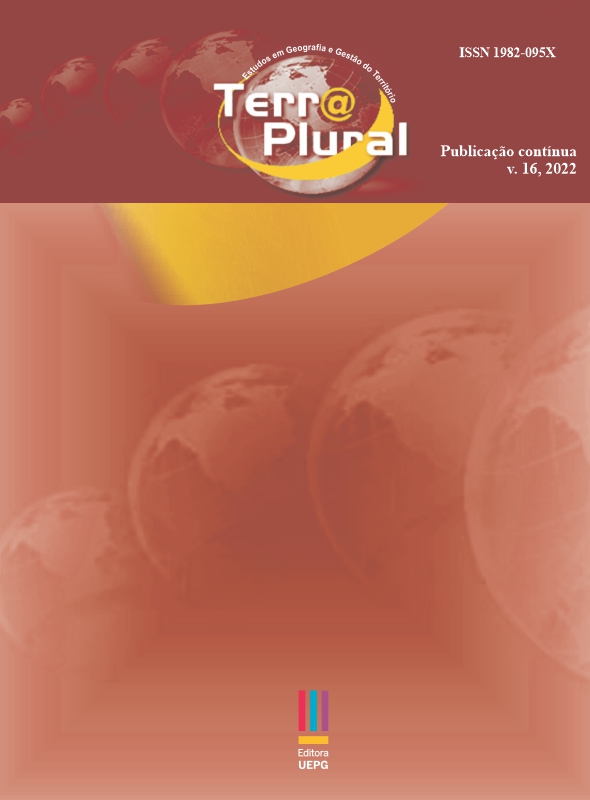The geography of the shredder market in Curitiba, PR, Brazil
a spatial analysis based on the National Law of Schreders
DOI:
https://doi.org/10.5212/TerraPlural.v.16.2221107.037Abstract
Is there a relationship between commercial locations and crimes against high-value property, specifically vehicles? To answer this question, we analyze the used vehicle and parts market, a segment regulated by the National Dismantling Law - Law # 12,977/2014, for the control with greater rigor of the activities of dismantling, sale, and resale of parts and used vehicles. In Paraná state Decree # 8,804/2018 requires accreditation of this type of trade, “shredder”, with the National Department of Transit - DETRAN. Thus, we analyzed the spatial correlation between the occurrences
of vehicles recovered from crime in Curitiba and the points of trade related to dismantling, pointing out areas of high casuistry of occurrence and possible relations with areas of concentration of automotive establishments of parts and used vehicles not yet regularized with DETRAN. A clear similarity was observed between some of the variables distributed by neighborhood, such as “partially legalized chop shops” and “recovered vehicles” (r=0.365). It can be concluded that the Law of the Auto
Dismantlers brought evident contributions to economic and social development, once contributed to the expressive fall of patrimonial crimes against vehicles in several states, also in Paraná. The results may alert the state to a greater and better commercial inspection of those establishments in its territory.
Downloads
Downloads
Published
How to Cite
Issue
Section
License
Copyright (c) 2022 Mário Henrique Anunciação Lemos, Luiz Alexandre Gonçalves Cunha

This work is licensed under a Creative Commons Attribution-NonCommercial-NoDerivatives 4.0 International License.
Revista Terr@ Plural will obtain the auctorial rights for all published texts. This also implies that the text can be published anywhere in the world, including all rights on renewal, expansion, and dissemination of the contribution, as well as other subsidiary rights. The authors get permission to publish the contribution in other media, printed or digital, it may be in Portuguese or translation since the publication is credited to Revista Terr@ Plural. It allows the self-archiving of published articles in institutional repositories, thematic repositories, or personal web pages in the pdf version downloaded from the journal's site.















